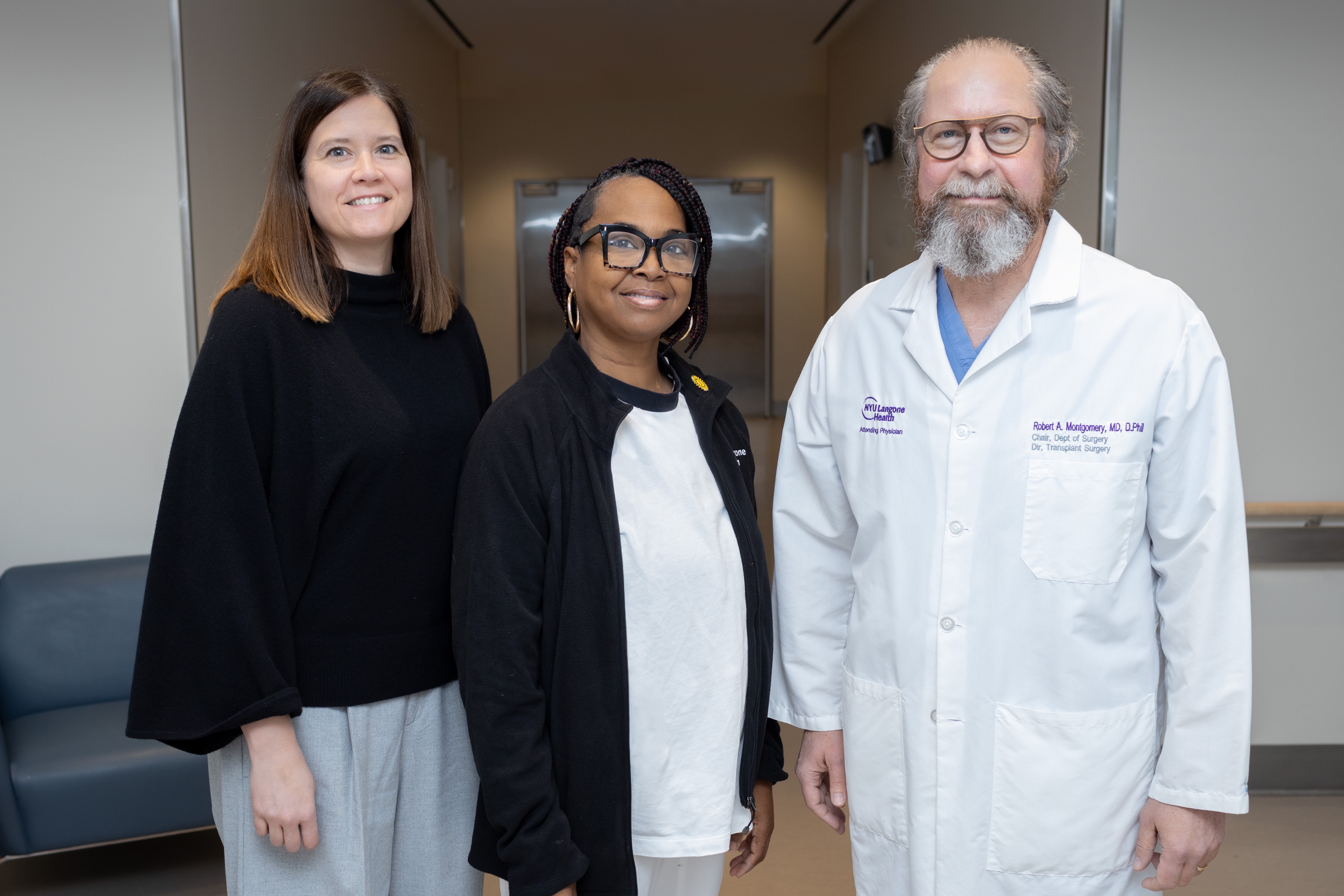An Alabama woman who had been on the waiting list for a kidney transplant since 2017 just became the third-ever recipient of a gene-edited pig kidney. Fifty-three-year-old Towana Looney had previously donated a kidney to her own mother, but when her one remaining kidney began to fail, the long wait for a donor organ began.
Looney’s situation was complicated by unique medical factors. She was judged likely to experience organ rejection due to high levels of harmful antibodies in her blood, making it nearly impossible to find a suitable human kidney match. For the almost eight years that she remained on the waiting list, she had to undergo lifesaving dialysis treatment, which becomes more and more difficult over time as the blood vessels needed for access become damaged.
It’s because of these circumstances that Looney eventually qualified to receive a gene-edited pig kidney under the Food and Drug Administration’s expanded access program.
The first living recipient of a genetically modified pig kidney was Richard “Rick” Slayman, a 62-year-old man who’d previously received a human kidney transplant and was living with end-stage kidney disease. Slayman’s surgery was performed at Massachusetts General Hospital in March 2024. He passed away suddenly in May, although the medical team said in a statement that there was no indication that this was as a result of the procedure.
In April of this year, 54-year-old Lisa Pisano from New Jersey received the second gene-edited pig kidney transplant. While the initial surgery was a success, the transplanted organ had to be removed a few weeks later as it was not receiving an adequate blood supply – Pisano had a pre-existing heart condition for which she’d also been fitted with a heart pump just eight days prior, a first. Pisano sadly died less than three months after the surgery was attempted.
In Looney’s case, the difficulty in finding a human donor organ meant that surgeons at NYU Langone Health were permitted to attempt xenotransplantation. She is the first to receive a kidney with 10 separate gene edits and is currently recovering well, having been discharged 11 days after the seven-hour operation.
“It’s a blessing,” she said in a statement. “I feel like I’ve been given another chance at life. I cannot wait to be able to travel again and spend more quality time with my family and grandchildren.”

Towana Looney (center) with surgeons Dr Jayme Locke (left) and Dr Robert Montgomery (right) a couple of weeks before the surgery.
Image credit: Mateo Salcedo/NYU Langone Health
Live Science reports that Looney’s kidney issues began after developing pre-eclampsia during pregnancy. Back in 1999, she had donated one of her kidneys to her mother, but high blood pressure resulting from the pre-eclampsia lead to chronic disease in her remaining kidney. She started dialysis in 2016 and was added to the transplant waiting list in 2017. As a prior living organ donor, Looney was given higher priority for a transplant.
However, as lead surgeon Dr Robert Montgomery pointed out in a news conference, finding a suitable match would have been a “one-in-a-million” chance. It’s cases like this, as well as the estimated 5,600 people who die while on the transplant waiting list each year in the US alone, that underscore the potential of using animal organs when no suitable human one is available.
Xenotransplantation remains an experimental procedure, and the medical team will be closely monitoring Looney’s progress. The advent of CRISPR gene editing technology revolutionized the field, increasing the chances of success by modifying key genes to make organs from another species more compatible with the human body. In Looney’s case, the medical team are hopeful that this pioneering procedure has given her new hope for the future.
“Towana is an inspiration,” said co-lead surgeon Dr Jayme Locke. “Being a member of her care team was an absolute privilege, and I could not be more proud of the NYU Langone Health team. The thought that we may now have a solution to the organ shortage crisis for others who have languished on our waiting lists invokes the most welcome of feelings: pure joy!”
Source Link: Third Living Person Ever Gets A Gene-Edited Pig Kidney Transplant